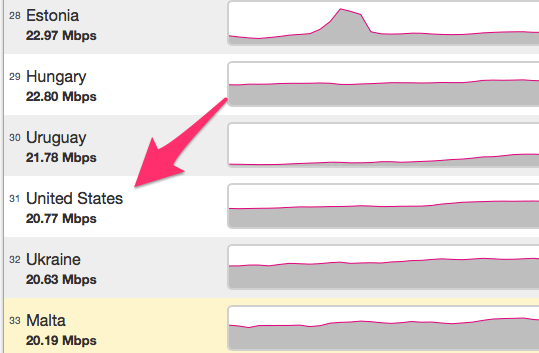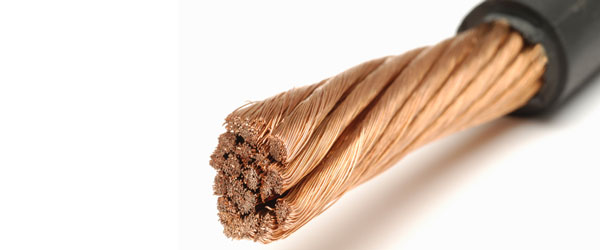Data speed record broken with existing copper wire
One of the big problems we are having these days is that our Internet speeds simply aren’t fast enough. If the extent of your Internet usage is reading webpages and checking email then it likely is, but anything beyond that and you’ve probably said to yourself ‘this connection is slow.’ Slow connections can manifest in many ways including blurry video, slow file downloads, long page-load times, and others. Not only that, even if you have a fast connection, many, many other aspects can affect your speeds. Speed of the transmitter, conditions on the network, type of conduit, and so on.
Cable companies offer tiered packages, but do you really get faster speeds? You might, but as any cable company will have written in their agreement with you, those advertised speeds are not guaranteed.
Coupled with the fact that the U.S. lags woefully behind many other countries for high-speed Internet access and the much-vilified potential merger of not just the two largest cable companies in the country but the two most hated as well – Time-Warner and Comcast – the future doesn’t look good. (Below graphic from gottabemobile.com)
But there are some bright spots. Google has been laying down superfast fiber in some cities, and some regional ISPs are doing the same even while those cities try desperately, and I mean desperately, to stop it. Even CenturyLink offers high-speed fiber in some areas of North Las Vegas. Traditional cable companies are scared.
The big problem with fiber is it requires a whole rebuilding of the network infrastructure, ripping up roads, yards, and utilities, putting new hardware in place: The cost for Google alone could rise into the billions, with the cost of a country-wide revamp costing much, much more. And even with fiber, the wire that actually goes into your house, known as the last mile, is still copper although similar advancements have been made there as well.
But there may be hope for us all yet, and perhaps a hidden respite for the beleaguered cable companies. Researchers at Bell Labs managed to create record-breaking speeds of 10 Gigabits per second across plain old copper wire (press release from Alcatel-Lucent at this link). That’s crushingly fast, especially since most of us deal with speed in the Megabits per second, and even fiber provides around 1 Gigabit per second. In other words, it’s one thousand times faster than what most of us deal with right now.
If a technology like this could be deployed, it could be a huge boon. Existing infrastructure could be used, costs could be kept down, availability of fast broadband could be accessible to almost everyone, streets wouldn’t need to be ripped up, and the U.S. could hopefully not be in the embarrassing position of having such poor broadband access. On the other hand, this was a lab experiment, and the L:R ratio (lab-to-reality ratio, a term I just made up) can be years for this kind of thing. Still, it’s a promising development.


